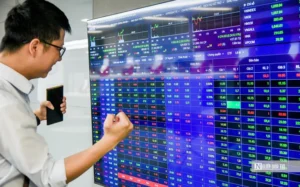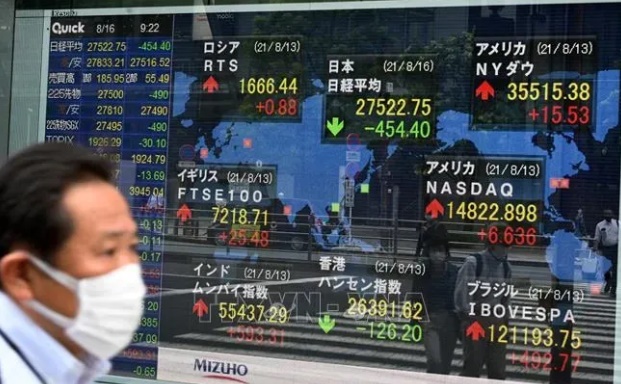Since the beginning of March, many leading regional indices such as the Japanese market, Hong Kong (China) or the exchanges of Mainland China and South Korea have all returned to an upward trend.
March has been a turbulent month for global markets, with the US, Europe and Asia all seeing sharp declines. But as the market heads into the final trading week of the month, investor sentiment in Asia appears to be more upbeat as many regional indices have recovered and are back on track compared to Wall Street.
Wall Street has been rocked by sell-offs this month, with the S&P 500 at one point entering correction territory, down more than 10% from its recent peak. Asian markets, meanwhile, have largely weathered the storm.
Since the beginning of the month, many leading regional indices such as the Japanese market, Hong Kong (China) or the Chinese mainland and Korean exchanges have all returned to an upward trend.
While global hedge funds were generally in the red in March, those focused on Asia also posted lower average losses than those in other markets, according to Reuters.
Asia is emerging as a “safe haven” for investors after sell-offs due to fears of a US recession, experts say.
Mr. Nick Sil Ver – Senior Investment Director, BNP Paribas Bank, Asia – Pacific region commented: “Stock speculation activities in Asian markets have been very strong since the beginning of the year, showing that this region is somewhat “isolated” from recent downturns”.
The recovery of the Asian market in March is said to come from many macro factors such as the data on salary increase and inflation in Japan meeting expectations or China launching many new plans to support the economy, while Wall Street is still facing great challenges due to the instability from the tariff measures of the Trump administration.
However, according to experts, investors still need to be cautious because of potential risks from tariffs on global trade.
Professor Jerry Parwada – University of New South Wales, Australia commented: “Recession concerns due to tariffs may still last for a while longer and economies heavily involved in global trade will find it difficult to avoid this “dark cloud” affecting investment expectations and business confidence”.
Besides macro factors, the low valuation of many Asian stocks is also considered an attractive factor for international investors, compared to the high growth momentum driven by large technology stocks in the US.
















